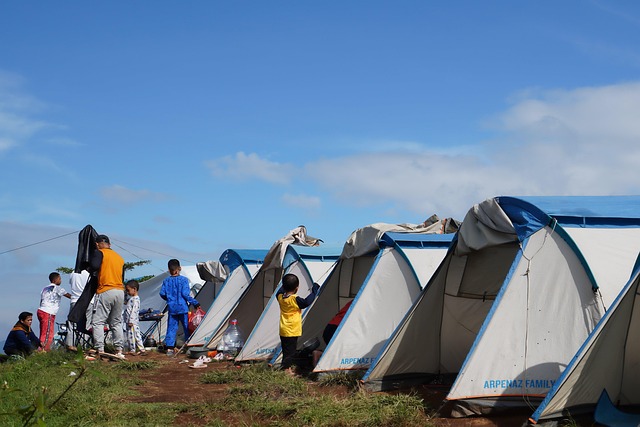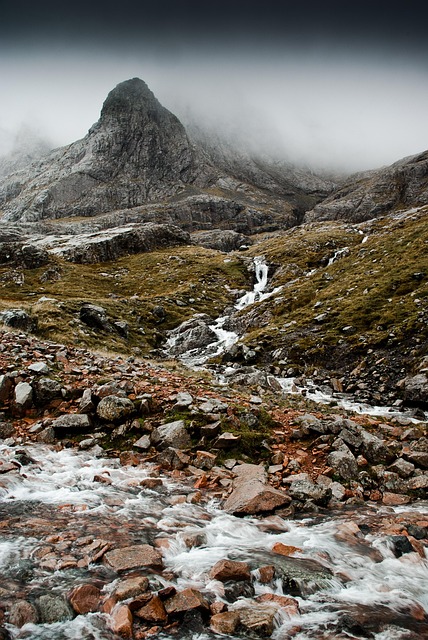Established in the 1950s, Rocky Creek Youth Camp appeared to offer a haven for at-risk youth, but behind its serene facade hid a history of systemic abuse. Allegations of physical, emotional, and sexual misconduct by staff and peers have emerged, affecting countless victims over decades. Survivors are now bravely sharing their stories, exposing the camp's failures and demanding accountability. This reveals the profound impact such institutions can have on vulnerable young lives and underscores the need for justice regarding past abuses at Rocky Creek Youth Camp.
In the heart of a once-idyllic setting, the Rocky Creek Youth Camp stood as a beacon of hope for many vulnerable youth. This historical perspective reveals a dark underbelly, exposing years of systemic abuse that has now come to light. Survivors are speaking out, sharing their stories of trauma and resilience, painting a stark picture of the exploitation they endured.
The article delves into the camp’s history, the community it served, and the unconscionable abuse that occurred behind its peaceful facade. We explore personal accounts, the legal implications, and the crucial lessons learned, highlighting the importance of survivor voices in driving reform and preventing future tragedies.
- The Rocky Creek Youth Camp: A Historical Perspective
- – A brief history of the camp and its purpose.
- – The community it served and the impact it aimed to have.
The Rocky Creek Youth Camp: A Historical Perspective

The Rocky Creek Youth Camp, established in the 1950s, was a place meant to inspire and nurture young minds. Located in a serene natural setting, it aimed to provide a haven for at-risk youth, offering them structure, education, and potentially transformative experiences. However, behind its picturesque facade, a dark secret lay hidden—abuse. Over the years, survivors have come forward to share their harrowing tales of physical, emotional, and sexual misconduct at the hands of camp staff and peers, painting a grim picture of life within these walls.
This historical perspective reveals a stark contrast between the camp’s stated mission and the reality experienced by many residents. The abuse at Rocky Creek Youth Camp is not just a recent revelation but a long-standing issue that has been systematized and overlooked for decades. As survivors speak out, they demand accountability and urge others to recognize the profound impact such institutions can have on vulnerable young lives.
– A brief history of the camp and its purpose.

Rocky Creek Youth Camp, established in the 1950s, was a seemingly idyllic retreat for young people seeking adventure and growth. Located in a serene natural setting, it aimed to provide a safe haven where children could connect with nature, build resilience, and develop valuable life skills through various outdoor activities. However, behind its picturesque facade, a dark secret lay hidden—a history of physical, emotional, and sexual abuse inflicted upon countless vulnerable youths who were entrusted to the camp’s care.
Over the years, survivors have come forward to share their harrowing experiences, shedding light on the systemic failure to protect them. The camp’s administration, it is alleged, turned a blind eye to the malicious acts of staff members, creating an environment that fostered abuse and silenced victims for far too long. As these stories surface, the extent of the trauma inflicted becomes evident, underscoring the urgent need for accountability and justice for those who suffered in silence at Rocky Creek Youth Camp.
– The community it served and the impact it aimed to have.

Rocky Creek Youth Camp, nestled in a vibrant and serene landscape, was envisioned as a haven for young individuals seeking guidance, healing, and growth. The camp aimed to foster a supportive community where attendees could explore their identities, discover their passions, and cultivate meaningful connections. However, behind its picturesque facade, a dark enigma unfolded—one that shattered the dreams and innocence of many.
The alleged abuse at Rocky Creek Youth Camp left a profound impact on the lives of its survivors. The camp, initially meant to revolutionize young minds and build a better future, became a labyrinthine journey of trauma and silence. Survivors speak out now, not just to shed light on their experiences but to break free from the whispering remnants of fear and shame. By sharing their stories, they hope to initiate healing not only for themselves but also to ensure that such atrocities never go unnoticed or unaddressed again.
The revelations about abuse at the Rocky Creek Youth Camp serve as a stark reminder of the importance of addressing historical trauma and ensuring accountability. Survivors’ voices, once silenced, are now shaping a narrative that demands recognition and healing. By shedding light on these heinous acts, we take steps towards justice and a future where such atrocities are prevented. The journey towards reconciliation is ongoing, and it begins with acknowledging the past and its profound impact on the lives of those affected.
